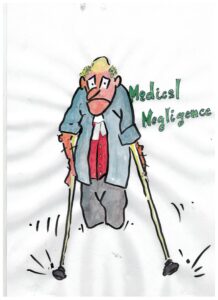Trusts – the ‘three certainties’ of a Trust
- 2014-05-08
- By whiggs
- Posted in Trusts & Trustee Law
No trust will be valid unless there exist the “three certainties” of words, subject-matter and object. The requirement is generally taken to date from 1840, in the statement of principle by Lord Langdale MR in Knight v Knight [1840] EngR 862 ; (1840) 3 Beav 148 at 172-173 [49 ER 58 at 68] (See, earlier, the judgment of Lord Eldon LC in Wright v Atkyns (1823) Turn & R 143 at 157 [1823] EngR 470; [37 ER 1051 at 1056]).
You need to understand the “three certainties” because you need them for a trust to be a valid trust – whether the trust established by the trust instrument is validly constituted by the trust instrument and will create in favour of the beneficiary a beneficial interest in the assets over which a trust is declared.
For an express trust to be valid, it must satisfy ‘the three certainties’: (You also want to see Kauter v Hilton (1953) 90 CLR 86, 97 (Dixon CJ, Williams and Fullagar JJ) and Associated Alloys Pty Limited v ACN 001 452 106 Pty Limited (in liquidation) (2000) 202 CLR 588, 604 [29] (Gaudron, McHugh, Gummow and Hayne JJ).
-
certainty of intention to create a trust, rather than, for example, the intention to make an absolute gift of the property or the expression of a mere hope that the property will be used in a particular way;
-
certainty of subject matter, where the trust property is defined and identified; and
-
certainty of object, such that the trust is in favour of definite beneficiaries or a recognised (usually charitable) purpose so that there is someone who can enforce the trust.
To put this more succinctly, in their joint judgment in Kauter v Hilton (1953) 90 CLR 86 at 97., Dixon CJ, Williams and Fullagar JJ identified:
the established rule that in order to constitute a trust the intention to do so must be clear and that it must also be clear what property is subject to the trust and reasonably certain who are the beneficiaries.
If any one or more of the “three certainties” is not present then you do not have a valid trust. This will result in a structure or financing transaction which is uncertain as the arrangement will then need to be characterised as something else.
If it is not a trust then what is it?
We’ll look into this question next……….
SEARCH BLOG POSTS
LATEST BLOG POSTS
- Updated product safety mandatory reporting guidance for suppliers now available
- Pleading fraud – cause and effect is essential
- Does the Trustee’s right of indemnity have priority over the right of beneficiaries in relation to assets?
- Rules of war (in a nutshell) | The Laws Of War
- MH370 Final Report
Past Blog Posts
- December 2021
- September 2021
- August 2021
- May 2021
- April 2021
- March 2021
- August 2020
- February 2020
- September 2019
- February 2019
- December 2018
- July 2018
- April 2018
- December 2017
- May 2017
- February 2017
- December 2016
- November 2016
- October 2016
- September 2016
- August 2016
- April 2016
- March 2016
- October 2015
- September 2015
- August 2015
- May 2014
- April 2014
- March 2014
- January 2014
Categories
- Appeals
- Artificial Intelligence
- Aviation law
- Banking and Finance Law
- Blogs
- Civil Liability Act
- Class Actions
- Coding for lawyers
- common law
- Consumer Claims (TPA)
- Contract Law
- Contractual Interpretation
- Criminal law
- Deeds
- Docassemble
- duty of care
- Engineering Law
- Equity
- Evidence
- Exclusion Clauses
- Execution of documents
- Expert Witness
- featured
- Financial Services
- Fraud
- Fundraising (Chapter 6D)
- General comment
- Home Building Law
- Insurance
- Legal drafting
- Local Court
- Medical Negligence
- MH370
- Motor Accidents
- Negligence
- Occupiers negligence
- Other
- Personal Injury
- Personal Property Securities (PPSA)
- Pleading
- Practice & Procedure
- Products Liability
- Property
- Real Property
- Reasons for a decision
- Securitisation
- Security (Mortgages & Charges)
- Sentencing
- Swaps & Derivatives
- Teaching
- Transactional Law
- Transfer of financial assets in transactions
- Trusts & Trustee Law
- Uncategorized
- War and Weaponry
- Witnesses
SEARCH BLOG POSTS
LATEST BLOG POSTS
- Updated product safety mandatory reporting guidance for suppliers now available
- Pleading fraud – cause and effect is essential
- Does the Trustee’s right of indemnity have priority over the right of beneficiaries in relation to assets?
- Rules of war (in a nutshell) | The Laws Of War
- MH370 Final Report
Past Blog Posts
- December 2021
- September 2021
- August 2021
- May 2021
- April 2021
- March 2021
- August 2020
- February 2020
- September 2019
- February 2019
- December 2018
- July 2018
- April 2018
- December 2017
- May 2017
- February 2017
- December 2016
- November 2016
- October 2016
- September 2016
- August 2016
- April 2016
- March 2016
- October 2015
- September 2015
- August 2015
- May 2014
- April 2014
- March 2014
- January 2014
Categories
- Appeals
- Artificial Intelligence
- Aviation law
- Banking and Finance Law
- Blogs
- Civil Liability Act
- Class Actions
- Coding for lawyers
- common law
- Consumer Claims (TPA)
- Contract Law
- Contractual Interpretation
- Criminal law
- Deeds
- Docassemble
- duty of care
- Engineering Law
- Equity
- Evidence
- Exclusion Clauses
- Execution of documents
- Expert Witness
- featured
- Financial Services
- Fraud
- Fundraising (Chapter 6D)
- General comment
- Home Building Law
- Insurance
- Legal drafting
- Local Court
- Medical Negligence
- MH370
- Motor Accidents
- Negligence
- Occupiers negligence
- Other
- Personal Injury
- Personal Property Securities (PPSA)
- Pleading
- Practice & Procedure
- Products Liability
- Property
- Real Property
- Reasons for a decision
- Securitisation
- Security (Mortgages & Charges)
- Sentencing
- Swaps & Derivatives
- Teaching
- Transactional Law
- Transfer of financial assets in transactions
- Trusts & Trustee Law
- Uncategorized
- War and Weaponry
- Witnesses




